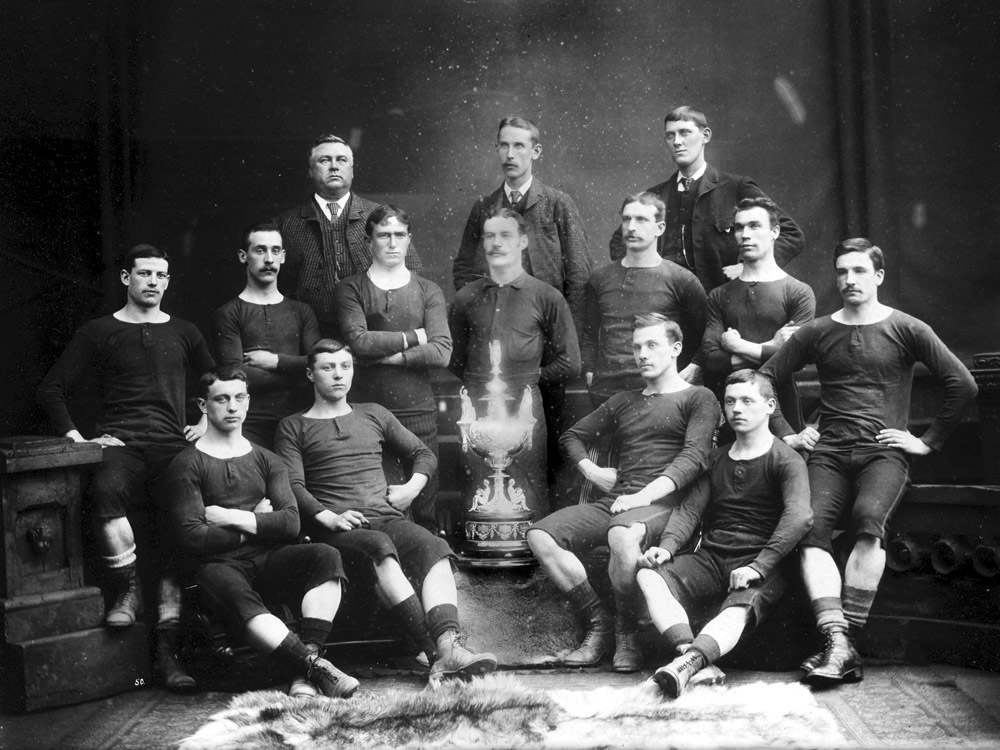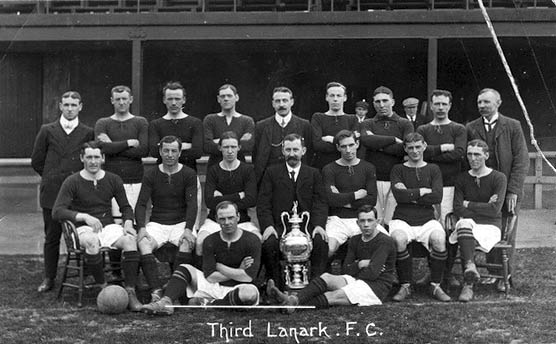|
John Campbell (footballer, Born 1877)
John William Campbell (2 October 1877 – 20 January 1919) was a Scottish footballer who played as an outside left for Linthouse, Partick Thistle, Blackburn Rovers, Rangers, West Ham United, Hibernian and the Scotland national team. Life and career Campbell was born in Glasgow and gained the most success in his career with Rangers with whom he won four successive league titles ( 1898–99, 1899–1900, 1900–01 and 1901–02) the first of which Rangers won all 18 of their Scottish league matches. He played alongside Jack Wilkie at four clubs. He also represented Scotland at international level, winning four caps and scoring six goals, including a double in Scotland's biggest ever win – an 11–0 defeat of Ireland in February 1901. He also appeared for the Scottish League XI. After his football career he became a ship's steward, but died aged just 41 from tuberculosis. [...More Info...] [...Related Items...] OR: [Wikipedia] [Google] [Baidu] |
RSSSF
The Rec.Sport.Soccer Statistics Foundation (RSSSF) is an international organization dedicated to collecting statistics about association football. The foundation aims to build an exhaustive archive of football-related information from around the world. History This enterprise, according to its founders, was created in January 1994 by three regulars of the Rec.Sport.Soccer (RSS) Usenet newsgroup: Lars Aarhus, Kent Hedlundh, and Karel Stokkermans. It was originally known as the "North European Rec.Sport.Soccer Statistics Foundation", but the geographical reference was dropped as its membership from other regions grew. The RSSSF has members and contributors from all around the world and has spawned seven spin-off projects to more closely follow the leagues of that project's home country. The spin-off projects are dedicated to Albania, Brazil, Denmark, Norway, Poland (90minut.pl), Romania, Uruguay, Venezuela, and Egypt Egypt ( ar, مصر , ), officially the Arab Republic of ... [...More Info...] [...Related Items...] OR: [Wikipedia] [Google] [Baidu] |
Glasgow Merchants Charity Cup
The Glasgow Merchants' Charity Cup was a knockout football tournament open to teams from in and around Glasgow and later on in the tournament's history, teams from outwith Glasgow. Invitations were made and sent out by the Glasgow Charity Cup Committee (GCCC) at their discretion, but no criteria were ever published. Like many domestic competitions in Scottish football, it was dominated by the Old Firm of Rangers and Celtic, with 31 and 28 victories each respectively. In the latter years of the tournament, it ceased being a knockout tournament and became a one-off contest between a Glasgow Select and a team invited from the English League. Clubs The early years of the tournament featured teams from outside Glasgow. The committee often invited teams based on name and popularity.THE GLASGOW CHARIT ... [...More Info...] [...Related Items...] OR: [Wikipedia] [Google] [Baidu] |
Glasgow Cup
The Glasgow Cup is a football tournament open to teams from Glasgow, Scotland. Operated by the Glasgow Football Association, it was competed for annually by senior Glasgow clubs from 1887 until 1989. It is now (since the 2019–20 amended rules) competed for between the senior teams of Clyde, Partick Thistle and Queen's Park and the youth teams of Celtic and Rangers, and has used both knockout and round robin formats to determine the finalists. The cup was dominated by the city's Old Firm rivals, Rangers and Celtic, who won the competition 44 times and 29 times respectively (including one shared win) while it was a senior competition. Only five times did the final not feature either Rangers or Celtic (1889, 1915, 1946, 1947, and 1989). The advent of European football led to the Glasgow Cup becoming less valued, and the tournament did not take place at all or was not finished several times in its later years. Since it was reinstated for youth teams, Rangers have won a further ... [...More Info...] [...Related Items...] OR: [Wikipedia] [Google] [Baidu] |
1901–02 Scottish Division One
The 1901–02 Scottish Division One season was won by Rangers by two points over nearest rival Celtic Celtic, Celtics or Keltic may refer to: Language and ethnicity *pertaining to Celts, a collection of Indo-European peoples in Europe and Anatolia **Celts (modern) *Celtic languages **Proto-Celtic language * Celtic music *Celtic nations Sports Fo .... League table Results References Scottish Football Archive {{DEFAULTSORT:1901-02 Scottish Division One 1901–02 Scottish Football League Scottish Division One seasons Scottish ... [...More Info...] [...Related Items...] OR: [Wikipedia] [Google] [Baidu] |
1900–01 Scottish Division One
The 1900–01 Scottish Division One season was won by Rangers by six points over nearest rival Celtic. League table Results References {{DEFAULTSORT:1900-01 Scottish Division One 1900–01 Scottish Football League Scottish Division One seasons Scottish ... [...More Info...] [...Related Items...] OR: [Wikipedia] [Google] [Baidu] |
1899–1900 Scottish Division One
The 1899–1900 Scottish Division One season was won by Rangers by seven points over nearest rival Celtic Celtic, Celtics or Keltic may refer to: Language and ethnicity *pertaining to Celts, a collection of Indo-European peoples in Europe and Anatolia **Celts (modern) *Celtic languages **Proto-Celtic language * Celtic music *Celtic nations Sports Fo .... League table Results References {{DEFAULTSORT:1899-1900 Scottish Division One 1899–1900 Scottish Football League Scottish Division One seasons ... [...More Info...] [...Related Items...] OR: [Wikipedia] [Google] [Baidu] |
1898–99 Scottish Division One
The 1898–99 Scottish Division One season was won by Rangers by ten points over nearest rival Heart of Midlothian. Rangers won all 18 of their league matches. Matthew Lindsay, Glasgow Times, 7 January 2021 League table Results References Scottish Football Archive {{DEFAULTSORT:1898-99 Scottish Division One [...More Info...] [...Related Items...] OR: [Wikipedia] [Google] [Baidu] |
Scottish League Division One
The Scottish Football League (SFL) was a league featuring professional and semi-professional football clubs mostly from Scotland.One club, Berwick Rangers, is based in the town of Berwick-upon-Tweed, which is located approximately 4 km south of the Anglo-Scottish border. From its foundation in 1890 until the breakaway Scottish Premier League (SPL) was formed in 1998, the SFL was the top level of football in Scotland. After 1998, the SFL represented levels 2 to 4 of the Scottish football league system. In June 2013, the SFL merged with the SPL to form the Scottish Professional Football League. The SFL was associated with a title sponsor from the 1985–86 season. As this sponsor changed over the years the league was known in turn as the Fine Fare League, B&Q League, Bell's Scottish Football League and finally as the Irn-Bru Scottish Football League. The SFL also organised two knock-out cup competitions, the Scottish League Cup and the Scottish Challenge Cup. History Format ... [...More Info...] [...Related Items...] OR: [Wikipedia] [Google] [Baidu] |
Tuberculosis
Tuberculosis (TB) is an infectious disease usually caused by '' Mycobacterium tuberculosis'' (MTB) bacteria. Tuberculosis generally affects the lungs, but it can also affect other parts of the body. Most infections show no symptoms, in which case it is known as latent tuberculosis. Around 10% of latent infections progress to active disease which, if left untreated, kill about half of those affected. Typical symptoms of active TB are chronic cough with blood-containing mucus, fever, night sweats, and weight loss. It was historically referred to as consumption due to the weight loss associated with the disease. Infection of other organs can cause a wide range of symptoms. Tuberculosis is spread from one person to the next through the air when people who have active TB in their lungs cough, spit, speak, or sneeze. People with Latent TB do not spread the disease. Active infection occurs more often in people with HIV/AIDS and in those who smoke. Diagnosis of active TB is ... [...More Info...] [...Related Items...] OR: [Wikipedia] [Google] [Baidu] |
Ireland National Football Team (IFA)
Ireland national football team may refer to: Association football (soccer) * Ireland national football team (1882–1950), the Irish Football Association's (IFA) original all-island team; first played in 1882 * Northern Ireland national football team, the successor to the original IFA team; sometimes played as "Ireland" until the 1970s * Northern Ireland women's national football team * Republic of Ireland national football team, the current Football Association of Ireland (FAI) team, previously played as "Irish Free State" and then "Ireland"; first played in 1926 * Republic of Ireland women's national football team * Proposed all-Ireland football team, a proposed future team to represent the whole island of Ireland Other sports * Ireland international rules football team * Irish national Australian rules football team * Ireland national futsal team * Ireland national rugby union team * Ireland national rugby league team The Ireland men's national rugby league team, known as th ... [...More Info...] [...Related Items...] OR: [Wikipedia] [Google] [Baidu] |
Cap (sport)
In sport, a cap is a player's appearance in a game at international level. The term dates from the practice in the United Kingdom of awarding a cap to every player in an international match of rugby football and association football. In the early days of football, the concept of each team wearing a set of matching shirts had not been universally adopted, so each side would distinguish itself from the other by wearing a specific sort of cap. An early illustration of the first international football match between Scotland and England in 1872 shows the Scottish players wearing cowls, and the English wearing a variety of school caps. The practice was first approved on 10 May 1886 for association football after a proposal made by N. Lane Jackson , founder of the Corinthians: The act of awarding a cap is now international and is applied to other sports. Although in some sports physical caps may not now always be given (whether at all or for each appearance) the term ''cap'' for a ... [...More Info...] [...Related Items...] OR: [Wikipedia] [Google] [Baidu] |



